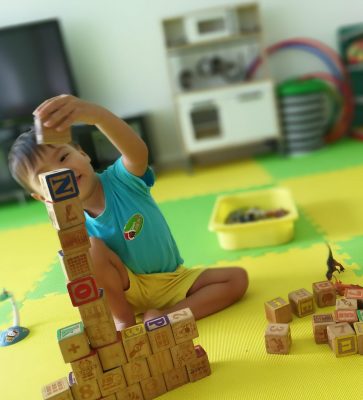5 Ways To Make Your Child Listen

You are not a bad parent. If you’re a first timer, it’s okay that you don’t know all the handback tricks to raising a child, but most importantly is that you want to try and do your best in raising them. Through this article, you will find it better to understand and be able to raise your child in a much better way, in hope to get the results that is required.
Truthfully the best way to guide your child’s behaviour is through a constructive yet positive approach. These are the 5 basic steps which we repeatedly share with parents who are trying to find a proper way to communicate with their kids.
1 – Set The Reward Rules
One way is to allow your child to earn some extra privileges by providing the necessary attention and reward he/she deserves. Instead of scolding or taking those privileges away why not make it clear in the beginning about the reward system. A quick an easy example would be, treating your child with his favourite cookie or something that he/she likes after homework has been completed. Once homework is done, then play time begins. This will act as a motivating tool towards encouraging completion of important tasks. This has been found to be effective rather than adding stress or pressure to your child, giving you additional stress of enforcing him/her to complete their task. Big lesson learnt here is to make your child understand; “ You need to EARN your privilege.”
2 – Give Them A Choice
What is choice, a free will to act on something. This is vital in raising a child, why? A child needs to understand that he/she has been given free will, however with the choice made there are consequences and therefore the right behaviour at the right place and time needs to be made. Guiding them through this process at a young age will make it easier for them to understand right from wrong, danger from safety, good people from bad as well. Very often do parents forget this key point, and decide everything for their child while enforcing control over them. A parent shall act as a gatekeeper, they should give their child a choice to make and monitor them accordingly to their behaviour. This is where the reward system from the above key point also plays an important role. They work hand in hand in making a child understand he/she’s behaviour better and how they should act in future. Simple things like, try to make your child feel important towards his/her daily life by asking what he/she likes to wear today? , What shoes does he/she want to have on? What TV show makes him/she happy? Just normal stuff like that alone can encourage a child to listen to you better because you as a parent are doing your part of listening too. Giving your child a choice will teach him/her about making good, well thought decisions in the coming future.
3 – Teach, Not Scold.
This is an equally important key point! Pay attention to your reaction when your child makes a mistake. Children are supposed to make mistakes, and as a parent you are suppose to educate them on why those are mistakes. Instead of telling your child what he shouldn’t do, show him what he should. Through guidance you will notice a better response. For an example, if it’s about to rain and your child goes out to the garden to play, what would you do or say? Go for a positive approach, instead of saying “ Don’t play outside”, instead say “ Better you go and play inside, because it’s going to rain.” Always follow up with a reason as to why you have declined their chosen act, this is to teach the child why a NO has been applied so it is not repeated in the future. Saves you the time of constantly having to repeat your instructions.

4 – Listen to your Child
It is a good reminder to always stay neutral when confronted with a difficult situation your child has got him/herself into. Yes you are the parent, at times you think you know your child’s behaviour better because you witness everything that happens at home. Correction. This can be subjective because some children behave very differently when they are at home & when they are with people outside. Lets just say you get a call from another parent or a teacher who has complained about your child, it is important for you to listen to both sides of the story before jumping into any conclusions. Always stay close to your child but give enough room for them to open up to you. This way the child will feel more comfortable to share almost anything that is happening in his/her life. If in some situations your child is wrong, this is a great opportunity for you to teach them by explaining to them from a different perspective why what they did was wrong. It is also important that you explain to your child that even if sometimes we may not like or agree with something, there are still rules and we have to follow them.
5 – Be A Role Model
Setting a good example from the start can go a long way in your upbring of your children. It is quite likely that a child will follow the footsteps of his parents because at this age they are observant, they trust that you are the adult and you know better so use your behaviour wisely to guide your child. If you don’t want your child to raise their voice on you, then don’t raise your voice on your child.( Unless in very serious circumstances you may do so but in strict moderation so the child will understand the seriousness of the mistake) If possible it’s better not do shout at all. Speak gently, and politely and you will see the difference in your child’s response. Some children have high level of resistance, especially when you imply new strategies remember to be consistant, it is the only way it will work. Try your best, and we hope your child will be the kind of person you want him/her to be.
Thank you for visiting KidsCove’s Website. If ever you need any additional support, our centre provides not only academic but social,emotional and behavioural support for your child. Contact us for more information. Thank you!
Infant Care

Baby Sitting

Toddler Care

Child Care

Day Care

Pre School





